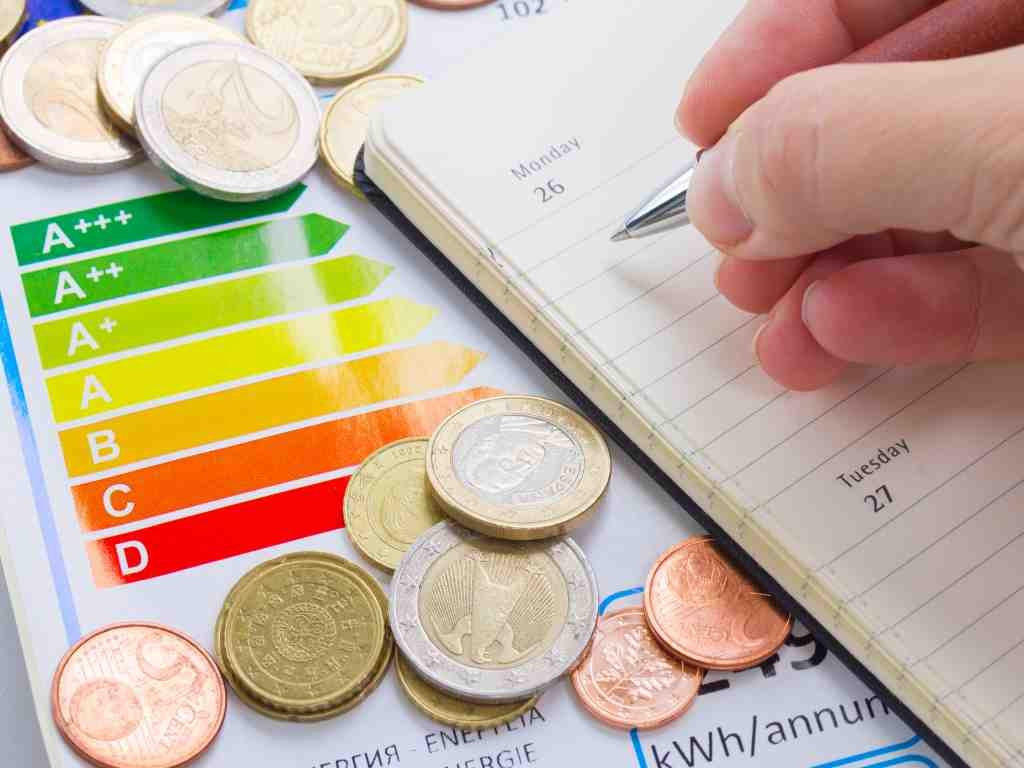
Introduction to Energy Efficiency
Energy efficiency has emerged as a critical consideration for both consumers and manufacturers in a world increasingly focused on sustainability. As rising energy costs strain household budgets, the demand for appliances that minimize energy consumption is more pressing than ever. Energy-efficient appliances not only provide significant savings on utility bills but also play a crucial role in reducing overall energy demand, thereby lessening the strain on our planet’s resources.
As we look towards 2025, the movement toward energy efficiency will only grow stronger. The ongoing climate crisis underscores the need for solutions that decrease carbon footprints and promote environmentally friendly practices. Investing in energy-efficient appliances is a step toward a larger goal: creating homes that contribute to a sustainable future. Various appliances, ranging from refrigerators to washing machines, are being designed with advanced technologies aimed at reducing energy use, thereby helping consumers save money and mitigate environmental impacts.
Moreover, government policies and incentives are increasingly encouraging the use of energy-efficient products. These initiatives aim to raise awareness about energy consumption and motivate consumers to choose products with better efficiency ratings. By prioritizing energy efficiency in the marketplace, manufacturers are paving the way for innovative appliances that not only meet the needs of consumers but also align with a growing demand for sustainable living practices.
Key Features of Energy-Efficient Appliances
In this context, understanding the importance of energy efficiency in household appliances becomes crucial. By making informed choices regarding the appliances we use every day, we not only improve our financial well-being but also contribute to a collective effort aimed at preserving our environment for future generations. As we explore the best energy-efficient appliances for 2025, it becomes evident that these products represent an essential investment toward a more economic and eco-friendly lifestyle.
Energy-efficient appliances have evolved significantly in recent years, incorporating numerous features that promote efficiency and sustainability. One of the most widely recognized benchmarks for these appliances is the Energy Star rating. This designation, awarded by the U.S. Environmental Protection Agency, signifies that a product meets strict energy performance standards. When shopping for appliances in 2025, consumers should prioritize looking for the Energy Star label, which assures them of the unit’s energy-saving capabilities compared to non-rated alternatives.
Another critical advancement in energy-efficient appliances is the integration of smart technology. Smart appliances use Wi-Fi connectivity and innovative algorithms to optimize their energy consumption. For instance, many washing machines and refrigerators now have sensors that adapt their performance based on usage patterns, reducing energy waste. These appliances often come with mobile applications that allow users to monitor and control energy usage remotely, making it easier to manage their home’s energy consumption effectively.
In addition to technological advancements, the design of energy-efficient appliances is also a crucial aspect to consider. Manufacturers are continually improving the overall efficiency of their products by utilizing advanced materials and designs that minimize energy loss. For example, dishwashers often feature improved insulation, which enhances performance while using less energy. Likewise, refrigerators may utilize better compressors and lighting systems to reduce energy consumption further. When shopping for appliances in 2025, consumers should examine energy labels for these innovative design features, as they can significantly contribute to long-term savings on energy bills.
Ultimately, understanding the key characteristics of energy-efficient appliances, including the Energy Star rating, smart technology, and thoughtful design aspects, is essential for making informed purchasing decisions. By paying attention to these features, consumers can ensure they are selecting appliances that not only save money but also help reduce their carbon footprint.
Top Energy-Efficient Appliances for 2025
As we move towards 2025, the urgency to lessen our carbon footprint while simultaneously saving money is reflected in the development of energy-efficient appliances. While the market is teeming with products that tout energy savings, a few stand out due to their advanced technology and efficiency ratings, making them ideal choices for environmentally conscious consumers.
Here is a lineup of the best options for diverse appliances:
- STYLISH: Our RCA Compact Refrigerator comes in a variety of colorful, bold, and glossy colors. That compliments your design and improves the appearance of your kitchen, dorm, room, or workplace, where…
- REVERSIBLE DOORS: It is small enough to fit in any dorm, kitchen, room, or workplace. Using the reversible door, you can easily set the little fridge door to open to the left or right, depending on yo…
- ADJUSTABLE THERMOSTAT CONTROL: The thermostat may be easily controlled with the control dial. From mild to cold to coldest. Even in hot weather, simply turn the knob to the temperature you choose.
- Spacious Capacity: The 4.5 cu. ft. capacity of this washer machine provides ample space for large laundry loads, making it ideal for daily use in homes and for large families
- Multiple Wash Cycles: Wash your laundry at home with this Black and Decker washing machine. Our clothes washer has 12 cycle selections to choose from for a variety of clothes, washes and needs
- Water Options Available: Our clothes washing machines offer 5 spin cycle options from no spin to extra high, and 5 water temperature choices from cold to extra Hot for laundry loads
- Slimline Design with Large Capacity : The Midea built-in dishwasher boasts a slim body that takes up minimal space and i…
- 8 Place Settings Dishwasher : With dimensions of 22.6″D x 17.6″W x 32.4″H with adjustable legs, this under sink dishwash…
- 6 programs+3 functions : The 18-inch dishwasher offers six programs, including Heavy, Normal, ECO, Delicate, Quick, and …
- Stylish stainless steel with timeless design (color of door frame is stainless steel, enclosure is black) kitchen appliances; Rated voltage: 120V – 60Hz; Rated input power (Microwave ovens): 1350W; Ra…
- Kitchen essential with pre-programmed menu for 6 popular foods like popcorn, pizza, potato and more, also defrost by weight and time
- One touch start: quick access to start the microwave from 1 to 6 minutes cooking at full power
- Effortless Cooling: Achieve optimal comfort with customizable temperature settings and two fan speeds; Effortless Temperature Control helps to maintain your preset temperatures for consistent comfort
- Easy Maintenance: Keep your air conditioner running efficiently with the easy-to-clean washable filter, designed to capture dust from the air for long-lasting performance
- Undisturbed Comfort: Experience a peaceful home environment with a quiet performance at 52 dBA – ideal for bedrooms or small spaces up to 250 sq. ft.
- Powerful Dyson suction and lightweight for quick cleaning. Without the cord.
- Up to 40 minutes of run time.¹ Power trigger helps maximize energy-efficiency, only using power when you need it.
- De-tangling Motorbar cleaner head. Deep cleans carpets and hard floors with hair removal vanes to clear long hair and pet hair from the brush bar.
These energy-efficient appliances represent the future of sustainable living. With continued focus on reducing energy consumption, consumers are better equipped to make informed decisions that are both financially and environmentally beneficial.
Benefits of Investing in Energy-Efficient Appliances
Investing in energy-efficient appliances is a strategic decision that yields numerous long-term benefits. One of the most significant advantages is the substantial savings on utility bills. While energy-efficient appliances may require a higher initial investment, the reduction in energy consumption results in lower monthly expenses. This means that over time, homeowners can see a significant return on their investment, ultimately leading to enhanced financial well-being.
Furthermore, utilizing energy-efficient appliances contributes to a reduced carbon footprint. These devices are designed to use less energy, which not only helps decrease greenhouse gas emissions but also promotes a more sustainable environment. By choosing appliances with higher energy efficiency ratings, consumers are actively participating in the fight against climate change, fostering a healthier planet for future generations.
Additionally, homes equipped with energy-efficient appliances often experience an increase in resale value. Potential buyers are increasingly discerning and view these energy-saving features as attractive selling points. An energy-efficient home not only reflects modern living standards but also assures prospective buyers of lower utility costs, making the property more competitive in the real estate market.
To maximize the benefits of energy-efficient appliances, there are several tips that homeowners can implement. Proper maintenance, such as routine cleaning and timely repairs, ensures that these devices function at peak efficiency. Moreover, understanding the appliance’s usage patterns can lead to smarter operation, such as using dishwashers and washing machines during off-peak hours to save on energy costs. By adopting these practices, individuals not only enhance their lifestyle but also positively influence their surrounding community by setting an example for sustainable living.









